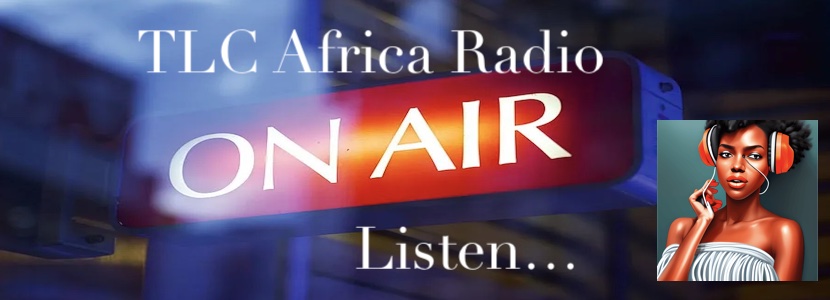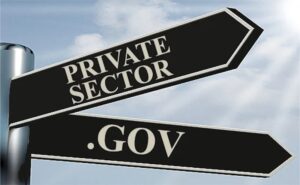
And then there’s the Judiciary – the third leg of the mighty tripod that holds up our democracy!
Weaknesses within the Legislative and Executive branches of Government are often discussed extensively and are well documented. But what about the Judiciary? How has it contributed to Liberia’s backwardness, underdevelopment, and lack of progress? With constant criticism of the Judiciary coming from within and outside, it is fair to say that this branch of Government is also weak and problematic. As a result, Liberia continues to suffer and is unable to operate at its full potential. The Judiciary must examine itself and reassess its role in the building of this nation.
The Judiciary no doubt is critical to Liberia’s growth, development and its overall survival. An effective Judiciary could play a significant role in bridging the gaps that exist within the Liberian society and build confidence in the justice system. Honest, unbiased interpretation of the law will provide clarity as to what is acceptable and unacceptable. Liberians need to be convinced that the law works for everyone, only the courts can do this. Unfortunately, the Judiciary has been lax in its performance, at times appearing more political than legal.
In the 1986 constitution, it is abundantly clear as to the responsibilities and unique privileges of the Judiciary branch of Government. Article 65 states that “The Judicial Power of the Republic shall be vested in a Supreme Court and such subordinate courts as the Legislature may from time to time establish. Judgments of the Supreme Court shall be final and binding and shall not be subject to appeal or review by any other branch of Government.” Also, as we all know, verdicts of subordinate courts must be obeyed or appealed to a higher court. There is no other alternative.
What awesome powers that rest with the Judiciary! But are these powers being used judiciously?
Responsibility of jurists and the Judiciary
In our system of government, when the Legislature makes the Law, the JUDICIARY must interpret the Law before the Executive can enforce the Law. So a perceived violation is only an allegation until the Judiciary has declared it a crime. Hence, an accused person, regardless of his or her offense, cannot be penalized under the law unless the Judiciary says so. With such powers invested in this branch of Government, why is there such lawlessness within the country?
The issue of lawlessness is as much the responsibility of the Judiciary as is any other entity of government. Particularly, the Constitution of Liberia has conferred upon the Judiciary enormous powers which places the onus more heavily upon this branch of Government. Those that select to become jurists must understand that the bar for ethical behavior is much higher for them than for the rest of the population. After all, they willingly chose a legal career; for this, the society rightfully accords the necessary esteem and honor. To whom much is given much is required. Therefore, a jurist is obliged to comport in accordance with the standards of their chosen occupation. And he or she should find it extremely painful, upsetting and disgusting when there’s a breakdown of law and order.
Liberians, in general, are aggrieved, disheartened and troubled when the credibility of the Judiciary is brought into question, and when we hear and or read comments such as the following:
“Liberia Needs Objective Judiciary, Not Political.”
UN Human Rights Office, 2018
“Some judges in Liberia accept bribes to award damages in civil cases…a Liberian Judge agreed that most often the decisions of judges have been influenced by bribery.”
US Department of State Human Rights Report, 2016
“Liberia’s Judiciary is Influenced by Corruption”
US Human Rights Reports, 2015
Our frustration and disappointment in the Judiciary is further heightened when a distinguished Liberian jurist makes the following comments publicly:
“We as judges have allowed our fraternal relationships and love for our brothers and sisters who are lawyers to influence our decisions, which have invariably led to various disciplinary actions…when a judge is suspended for violation of one of the judicial canons, because a lawyer or lawyers influenced or misled the judge into taking the action for which he was suspended, that judge is exposed to public disrepute, while the lawyers involved behave as if they are saints.”
The late Judge Johannes Zogbay Zlahn, Civil Law Court, Monrovia
A respectable Judiciary could among others assist Liberians in taking ownership of our country and encourage the forging of stronger bonds between the citizenry. In doing so, the courts must be fair, ethical and brutally transparent. Article 21(f) of the 1986 constitution is one example of fairness in dispensing justice; it guarantees a “speedy trial”. This basic right must be respected at all times, regardless of the status of the individual.
Also, discrimination, as it relates to gender, religion, race, ethnicity, or association should not be permitted under any circumstance. When each and every citizen is assured equal protection under the law, it is when Liberians shall truly believe and behave as one people under God with liberty and justice for all.
Balancing courage and professional ethics
Uniting Liberians through the law must be the goal of every patriotic Liberian jurist. The late Emma Shannon Walser – Liberia’s first female Judge – was a glaring example of a patriotic jurist. She was oftentimes referred to as a “progressive” because of decisions taken while serving as a judge. One such decision was her refusal to sentence an indigenous Liberian to death, arguing that “the man had been poorly represented by a State Lawyer.” This resulted in the Supreme Court levying a fine on her in the case: “Republic of Liberia V. Emma Shannon-Walser, 27 LLR 274 (1978)—that the Constitutional right to counsel includes the right to competent Counsel.”
Later, in April 1979, Judge Walser challenged the Liberian government’s detention of opposition leaders alleged to have instigated the Rice Riot. For this, she was removed from the bench by a joint resolution of the Legislature. If only there had been a few more jurists as Emma Shannon Walser, perhaps Liberia won’t be in the state it is presently.
Another strong pillar of the Liberian Judicial system is its Code of Moral and Professional Ethics. This finely crafted document is a fabulous illustration of honesty, justice, morality and the principles of the rule of law. Under Rule 1—which refers to the lawyer’s obligation to the courts, it states clearly how the lawyer should not engage in any unprofessional conduct that could impugn the reputation of the courts. And, under Rule 29—upholding the Honor of the profession, it is emphatic that “lawyers should without fear or favor expose corruption or dishonest conduct in the profession before the Bar Association.” There is no doubt the Code of Moral and Professional Ethics have honorable intentions, but to be of value, the Rules must be rigorously enforced.
Overhaul the justice system for the people
In the forward march toward a sound democracy grounded in the rule of law, the people of Liberia surely will no longer tolerate dishonest courts and bad Lawyers donning that honorable black robe only to dispense soiled justice. Because the Judiciary is equally responsible for the peace, stability, and unity of this nation, and it must not evade its responsibility.
The extremely low perception of the Liberian justice system by the citizens and the International community is more than enough reason for critical assessment and the necessary adjustment. If Liberian jurists are unable to improve the overall performance of the justice system, then changes must be made. These changes might include opening up the Liberian courts to foreign Lawyers and the election of judges for subordinate courts. The people of Liberia must not be forced to accept a weak, diluted justice system that negatively impacts the quality of our lives.
At the front entrance of the Temple of Justice on Capitol Hill in Monrovia stands “Lady Justice” – the unmistakable symbol of truth, fair-play, and justice in its purest form. With her head lifted high and blindfolded, she sees only the truth and nothing but the truth. One can hardly pass-by or stand beside this dignified statue and not sense the invisible aura of its solemnity. Perhaps, as a reminder of the awesome responsibility a Lawyer has to humanity and to the State, he or she should stop for a moment and take a good look at “Lady Justice” before entering the court to transact business. Because war and peace; life and death; not to mention the rise and fall of nations hang on decisions that emanate from within the chambers of Justice.
“As long as there are courageous men and women of the law, so long will the reign of the Rule of Law retain its firm hold on the greater portion of the human race.” These words were spoken in 1961 by Dr. T. O. Elias, Minister of Justice and Attorney-General of the Federal Republic of Nigeria. Today, they ring true for courageous men and women of the law wherever they are found.















